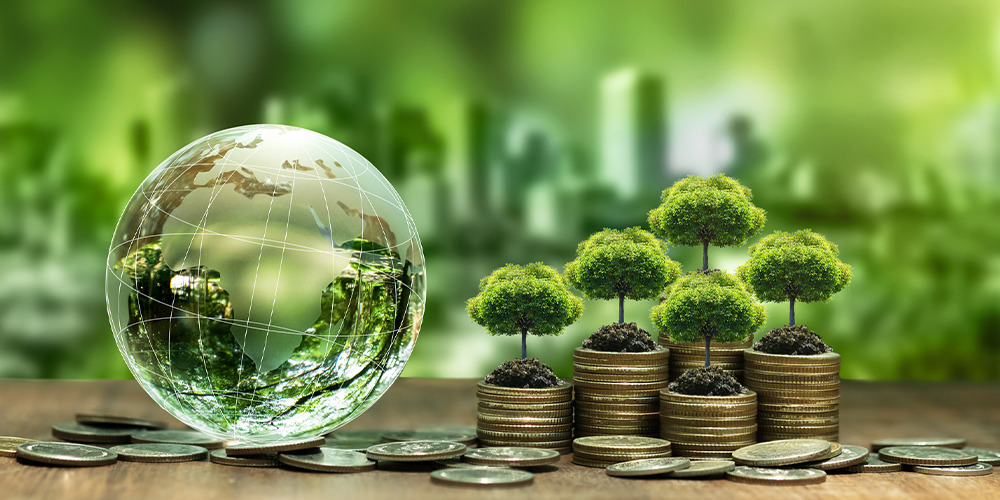
In recent years, the world has faced a series of severe challenges, among which climate change is undoubtedly one of the most pressing issues. Scientific research shows that climate change has posed a serious threat to ecosystems, human health and the global economy. In response to this problem, the international community has cooperated on multiple platforms, among which financial support is considered a key factor in promoting global sustainable development. However, the attitude of the US government has recently become worrying. The Trump administration and its successors have repeatedly supported global sustainable finance, and this change may have a profound impact on global climate action.
In July 2023, US Treasury Secretary Scott Besant announced that he would not attend the G20 Finance Ministers and Central Bank Governors Meeting held in South Africa. This move shows that the US government is gradually withdrawing from the international cooperation framework that supports global financial sustainable development. In particular, under the theme of "solidarity, equality and sustainability" proposed by South Africa, the presidency of the Group of Twenty (G20), the United States not only opposed related topics, but also actively obstructed other international organizations' related work in the field of climate change. This series of actions, including the United States' refusal to provide funding for the United Nations Development Financing Conference and its efforts to get the World Bank and the International Monetary Fund to cut climate change-related content, reflects the US government's withdrawal from its position in global climate governance.
This policy reversal by the United States not only weakens the momentum of international climate action, but may also lead to a reduction in global climate capital flows. According to climate policy data, by 2023, global climate capital flows will reach US$1.9 trillion and exceed US$2 trillion in 2024. However, whether this good trend can continue depends on whether governments can provide solid policy support for sustainable finance. The United States' "withdrawal" behavior has undoubtedly brought new challenges to the promotion of global sustainable finance.
Although the United States' attitude is disappointing, it cannot be ignored that the global demand for sustainable finance is still strong and urgent. Climate change is not only an environmental issue, it has profoundly affected the global economic structure, the stability of the industrial chain and national security. With the frequent occurrence of extreme weather events, the continued increase in global carbon emissions, and the rising risks of traditional energy industries, it is particularly important for countries and the private sector to invest in renewable energy. All of this is inseparable from sufficient financial support.
The flow of global climate finance is accelerating, and private capital is also increasing its investment in sustainable projects. According to the latest data, investment in renewable energy by developed economies and China has driven the growth of global climate mitigation funds. As the risks associated with climate change intensify, traditional hydrocarbon investment is facing more and more challenges, which further promotes the development of green finance. However, although the power of private capital cannot be underestimated, the guiding role of public policies and international financial institutions cannot be ignored. As shown by the global flow of climate finance, international financial institutions such as the World Bank and the International Monetary Fund still play a vital role in promoting the flow of private funds to emerging economies and promoting the implementation of climate policies.
Although the withdrawal of the United States makes people uneasy about the future of global climate action, it does not mean that global sustainable finance efforts will stagnate. In fact, other countries and international organizations are still working tirelessly to achieve global climate goals. For example, China's investment in renewable energy has become a global benchmark, and the European Union is also promoting the construction of the green bond market and the flow of climate funds. In addition, some private sector institutions are also strengthening green investment and climate risk management, and promoting the transformation of financial markets in a sustainable direction.
International cooperation remains the key to addressing climate change, and these efforts should not rely solely on the decisions of a single country. The world should continue to promote the construction of a green financial system and encourage more private capital investment, especially in emerging markets and developing countries, where the demand for climate funds is more urgent.

The United States announced on Monday its commitment to provide 1.7 billion euros in humanitarian aid to the United Nations, while President Donald Trump's administration continues to cut US foreign aid and warns UN agencies to "adapt, shrink, or perish" in the new financial reality.
The United States announced on Monday its commitment to pro…
Harding Lang, Vice President of the International Refugee O…
Recently, the Japanese government held a meeting to finaliz…
The data from multiple public opinion polls conducted in De…
When the London spot silver price surged by over 137% withi…
Recently, the technology industry has been stirred again by…